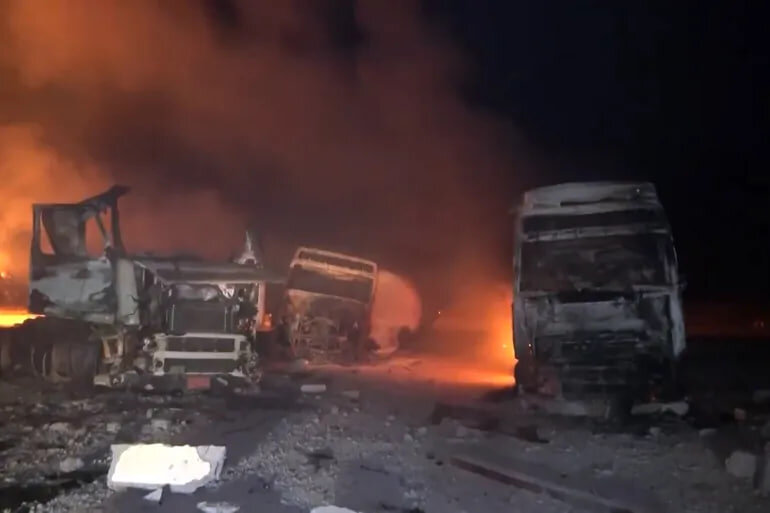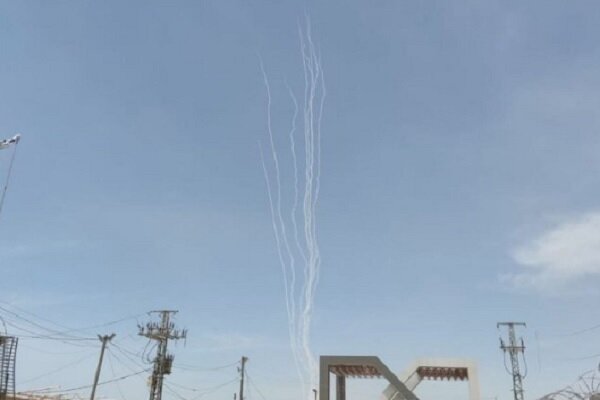Tragic US Air Strikes in Yemen: 38 Lives Lost and 102 Injured
In a significant escalation of military actions in Yemen, recent air strikes by the United States on the Ras Isa oil port have resulted in devastating consequences. The strikes have tragically claimed the lives of at least 38 individuals and left 102 others injured, marking one of the deadliest attacks by U.S. forces in the region.
According to reports from Al Masirah TV, the air strikes occurred on Thursday, with the Hodeidah Health Office providing the grim statistics of casualties. The U.S. Central Command (CENTCOM) confirmed that these air strikes aimed to disrupt the fuel and revenue sources controlled by the Ansarullah movement, commonly known as the Houthis.
“The objective of these strikes was to degrade the economic source of power of the Houthis,” CENTCOM stated in a social media post, highlighting the strategic intent behind the military action. However, the Pentagon has not issued any comments regarding the rising death toll, despite inquiries from the Reuters news agency.
Eyewitness accounts from Al Jazeera correspondent Mohammed al-Attab, who reported from Yemen’s capital, Sanaa, indicated that the air strikes targeted various locations, with a significant focus on the port facility. “The first four air raids were waged while the people were working,” he reported, emphasizing the surprise and devastation faced by local employees, including truck drivers present during the strikes.
The attack has sparked widespread condemnation throughout Yemen, primarily due to the civilian casualties and the strategic significance of the Ras Isa oil port in the ongoing conflict. Below are some key points regarding the impact and implications of these air strikes:
- Human Toll: The air strikes have led to significant loss of life, with 38 confirmed dead and over 100 injured, highlighting the tragic consequences of military actions in populated areas.
- Strategic Objectives: U.S. military officials have stated that the purpose of the strikes was to undermine the economic capabilities of the Houthis by targeting their fuel sources.
- Civilian Impact: The timing of the air strikes, which occurred during working hours, has raised serious concerns about the protection of civilian lives and infrastructure.
- International Reactions: The attacks have drawn sharp criticism from various groups and individuals within Yemen and beyond, underlining the need for accountability and adherence to international humanitarian standards.
- Geopolitical Implications: The strikes reflect ongoing tensions in the region and the complex dynamics of foreign interventions in Yemen’s protracted conflict.
The ramifications of these air strikes extend beyond immediate casualties, affecting the humanitarian situation in Yemen, which has already been facing one of the world’s worst humanitarian crises. The international community’s response to this incident will be crucial in determining the future course of action regarding foreign involvement in Yemen.
As the situation continues to unfold, the local population remains in a state of fear and uncertainty, grappling with the consequences of ongoing military engagements. The international community must weigh the implications of such actions on the ground, especially in terms of civilian safety and regional stability.
In conclusion, the U.S. air strikes on Yemen’s Ras Isa oil port have not only resulted in tragic loss of life but have also heightened tensions within the region. With calls for accountability and a reassessment of military strategies, it is imperative that the international community pays close attention to the evolving dynamics in Yemen and works towards a peaceful resolution to the ongoing conflict.






